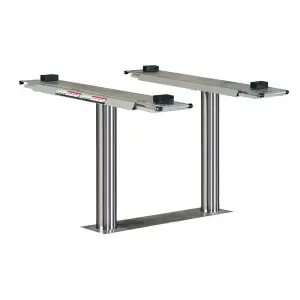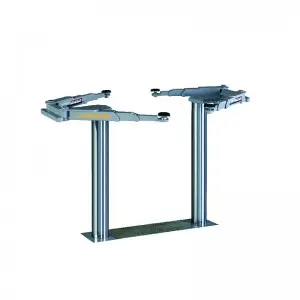Understanding AC Series: Applications, Benefits, and Impact on Electrical Systems

Exploring the Wonders of AC Series: Understanding Its Applications, Benefits, and How It Revolutionizes Electrical Systems Today
In today’s rapidly evolving technological landscape, alternating current (AC) power systems play a pivotal role in efficiently supplying electricity to both residential and industrial sectors. AC Series refers to the interconnected networks that utilize alternating current for transporting electric energy. While the concept may seem straightforward, the intricacies of AC Series applications and their impact on our daily lives are profound and worth exploring.

Exploring the Wonders of AC Series: Understanding Its Applications, Benefits, and How It Revolutionizes Electrical Systems Today
What Is an AC Series?
An AC Series, in electrical engineering, consists of components connected in a loop that facilitates the transfer of alternating current. Unlike direct current systems, where the current flows in a single direction, AC current periodically reverses its direction. This characteristic makes AC Series particularly advantageous for long-distance power transmission and various electrical applications.
Historical Context
The idea of using alternating current for power systems dates back to the late 19th century, when pioneers like Nikola Tesla and George Westinghouse argued fervently for its superiority over direct current systems, primarily promoted by Thomas Edison. The war of currents culminated in the widespread adoption of AC systems, which allowed electricity to be generated at a central location and distributed over long distances with minimal energy loss. This form of electrical transmission laid the foundation for modern electrical grids and continues to shape our energy consumption today.

Exploring the Wonders of AC Series: Understanding Its Applications, Benefits, and How It Revolutionizes Electrical Systems Today
Applications of AC Series
1. **Power Transmission**: One of the most significant uses of AC Series lies in the transmission of electricity over long distances. High-voltage AC lines reduce energy loss due to resistance in conductors. By using transformers, the voltage can be stepped up for efficient transmission and then stepped down for safe delivery to homes and businesses.
2. **Industrial Machinery**: AC motors are prevalent in industrial applications, thanks to their durability, efficiency, and simpler control systems compared to their DC counterparts. Factories often rely on AC Series to power conveyor belts, cranes, and lathes, showcasing the versatility of alternating current in providing mechanical energy.
3. **Home Appliances**: Most household appliances, such as refrigerators, microwaves, and air conditioners, operate on AC power. This ubiquity of AC appliances underscores the importance of the AC Series and its ability to cater to everyday energy needs without compromising functionality.
4. **Renewable Energy Sources**: As society transitions toward more sustainable energy sources, AC Series plays a crucial role in integrating renewable energy into existing power grids. Wind and solar energy systems often produce AC power that can be fed into the grid, showcasing the adaptability of AC systems to modern energy solutions.
Benefits of AC Series
**Efficiency**: AC systems can transmit electricity over great distances with less energy loss, making them ideal for large-scale power distribution. As energy demands continue to increase, maintaining efficiency becomes increasingly critical to sustainability efforts.
**Safety**: The design of AC systems inherently allows for safer operating voltages in residential areas. Utilizing transformers to adjust voltage levels reduces the risk of shock and increases safety for end-users.
**Versatility**: AC Series can be easily generated and transformed, allowing for various voltage levels suitable for different applications, making it a flexible choice for many industries.
Future Prospects
The future of AC Series looks promising as technology advances. Innovations in smart grid technology, which utilizes digital communications to monitor and manage electricity flow, present new avenues for optimizing AC power delivery. Furthermore, with the global push towards renewable energy, integrating sustainable sources into existing AC infrastructures is pivotal.
In conclusion, the AC Series represents more than just a means of transmitting electricity; it is a cornerstone of modern electrical systems that has stood the test of time. Its diverse applications, combined with the numerous benefits it offers in terms of efficiency, safety, and versatility, highlight its significance. As we look to the future of energy, understanding and improving the AC Series ensures that we continue efficiently powering our world.New Engery Vehicle Battery Lift



